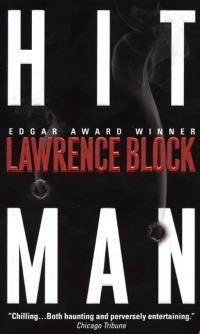The Burglar Who Met Fredric Brown by Lawrence Block
 Friday, October 20, 2023 at 6:46AM
Friday, October 20, 2023 at 6:46AM 
First published in 2022; published by Subterranean Press on October 31, 2023
Fredric Brown wrote pulp fiction from the 1930s to the 1970s. Lawrence Block is a prolific crime writer whose most productive years began in the 1970s, although he won most of his awards in the 1980s and 1990s. The burglar Bernie Rhodenbarr is one of his ongoing characters.
Bernie owns a used bookstore in Greenwich Village. He’s fortunate to own the building that houses the store so he doesn’t need to worry about rent increases. Bernie hasn’t burgled much in recent years because he can’t pick a digital lock and security cameras are everywhere.
One night, Bernie falls asleep reading Brown’s What Mad Universe, a 1949 novel about an alternative universe that predates the modern understanding of the multiverse. When Bernie wakes up, he finds himself in an alternate universe that is similar to his own but better. A couple of Greenwich Village businesses that closed are still operating. A fence who died long ago is still alive. Amazon doesn’t exist so his store is doing a brisk business. Security cameras and digital locks are mostly nonexistent. And his best friend Carolyn wants to have sex with him. In his universe, Carolyn is a lesbian; in this one, she still is but she has the hots for Bernie.
Bernie takes advantage of the changes to steal a famous diamond, unencumbered by digital locks and security cameras. The convoluted plot then introduces jade figurines that alternate Bernie may already have stolen, an insurance scam, a few murders (the victims seem to be from Alice in Wonderland), and a classic reveal in which multiple suspects gather in the bookstore so that Bernie can set things right before returning to his own universe.
While the novel’s dip into science fiction is a bit odd (Block dabbled in the genre in his early years but generally stuck to crime fiction), the story flows effortlessly. Block riffs on Candide’s notion about the best of all possible worlds. The novel’s message (Block spells it out to make sure the reader takes his point) is “If you want something badly enough, you’ll get it. And then you won’t want it anymore.” When we scratch an itch, the itch goes away. A corollary is that we don’t always know what we want until we get it.
The book is ultimately about friendship. I don’t know if it’s politically correct for two people to have a cisgendered relationship after a lifetime of feeling no sexual attraction because of their sexual identities, but Block is too old to give a crap about being politically correct. His point is that we are all free to scratch our itches, that it’s nobody’s business if we do, and that friends are allowed to mark and change the boundaries of their friendships without judgment. While this is the strangest of the Bernie Rhodenbarr novels I’ve read, it proves that Block, at the age of 85, still has worthwhile stories to tell.
RECOMMENDED



